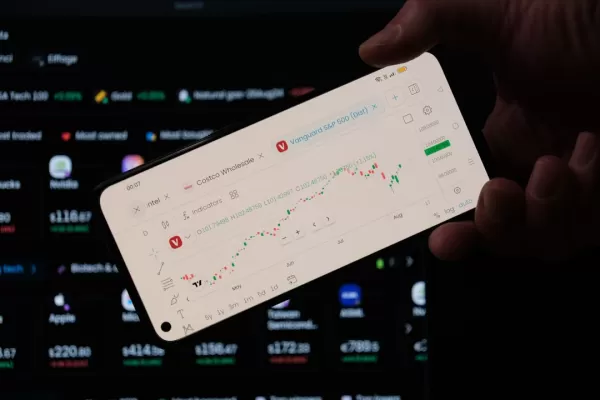
Taking money out of a limited Company
Registering for Corporation Tax

Withdrawing Money from Your Limited Company
As a director of a limited company, you may wonder how you can pay yourself. Here are some ways to withdraw money from your company:
- Salary: You can pay yourself a regular salary, just like any other employee.
- Dividends: If your company is making a profit, you can pay yourself dividends.
- Expenses: Reimburse yourself for any legitimate business expenses you've covered personally.
Registering for Corporation Tax
When you set up a limited company, you must register for Corporation Tax with HM Revenue and Customs (HMRC). Here's what you need to do:
- Register Online: You can register for Corporation Tax online on the HMRC website.
- Get Your Unique Tax Reference: HMRC will send you a unique tax reference number for your company.
- File Your Tax Return: You must file a Company Tax Return and pay any tax due within nine months and one day of the end of your accounting period.
Opening a Business Bank Account

Withdrawing Money from a Limited Company
As a business owner, it's crucial to understand the proper way to take money out of your limited company. Here are some key points to keep in mind:
- Salary: Pay yourself a regular salary as an employee of the company. This is a common way to compensate yourself for the work you do.
- Dividends: If your company is making a profit, you can pay yourself dividends as a shareholder. Dividends are a share of the company's profits distributed to its shareholders.
- Expenses: Ensure that any personal expenses paid from the company account are properly documented and justified as legitimate business expenses.
Remember, it's essential to consult with your accountant or financial advisor to ensure you are following the legal and tax requirements when taking money out of your company.
Opening a Business Bank Account
Setting up a separate business bank account is a fundamental step in managing your company's finances. Here's why it's important:
- Financial Clarity: Keeping your personal and business finances separate makes it easier to track income, expenses, and taxes.
- Professionalism: A business account adds credibility to your company and shows clients that you are a legitimate business entity.
- Legal Compliance: Some legal structures, like limited companies, require a separate business account by law.
When opening a business account, be prepared to provide documentation such as your company's registration papers, identification, and proof of address. Shop around to find a bank that offers the services and features that best suit your business needs.
Paying Yourself a Salary

Introduction: Paying Yourself from a Limited Company
As a business owner of a limited company, you may be wondering how to pay yourself. One common method is by taking a salary. Let's dive into how you can do this in a tax-efficient manner.
How to Pay Yourself a Salary:
When you pay yourself a salary from your limited company, there are a few key steps to keep in mind:
- Determine a Reasonable Salary: It's important to determine a reasonable salary based on your role and responsibilities within the company. This can vary depending on industry standards and the financial health of your business.
- Set Up a Payroll System: To pay yourself a salary, you'll need to set up a payroll system within your company. This ensures that the necessary taxes and deductions are taken care of.
- Stay Compliant with Tax Laws: Make sure to stay compliant with tax laws and regulations when paying yourself a salary. This includes deducting income tax and National Insurance contributions.
Benefits of Paying Yourself a Salary:
Paying yourself a salary from your limited company offers several benefits:
- Regular Income: By paying yourself a salary, you can ensure a regular income stream, which can help with personal financial planning.
- Tax Efficiency: Taking a salary can be more tax-efficient than other methods of extracting money from your company, such as dividends.
- Building National Insurance Contributions: Paying yourself a salary can help you build up National Insurance contributions, which can affect your entitlement to state benefits like the State Pension.
Conclusion:
Overall, paying yourself a salary from your limited company is a common and tax-efficient way to compensate yourself for your hard work. By following the necessary steps and staying compliant with tax laws, you can ensure a smooth and sustainable income stream.
Declaring Dividends

Introduction:
When you own a limited company, you may want to take money out of the business for personal use. One common way to do this is by declaring dividends.
What are dividends?
Dividends are payments made by a company to its shareholders out of its profits. It's a way for the company to distribute its earnings to its owners.
How to declare dividends:
Declaring dividends in a limited company involves a few steps:
- Determine the amount available for dividends: Before declaring dividends, you need to ensure that your company has enough distributable profits.
- Hold a board meeting: A resolution to declare dividends usually needs to be passed at a board meeting.
- Document the decision: It's essential to keep proper records of the dividend declaration, including the amount, date, and who attended the meeting.
- Distribute the dividends: Once dividends are declared, they need to be paid to the shareholders according to their shareholding.
Advantages of dividends:
There are several advantages to taking money out of a limited company through dividends:
- Flexibility: Dividends allow you to take out profits without affecting your salary or other income.
- Tax efficiency: Dividends can be a tax-efficient way to extract money from your company, as they are subject to lower tax rates than salaries.
- Return on investment: As a shareholder, dividends are a way to receive a return on your investment in the company.
Considerations:
While dividends can be a useful way to take money out of your limited company, it's essential to consider the following:
- Legal requirements: Make sure you comply with all legal requirements when declaring dividends.
- Impact on the business: Consider how taking out dividends may affect the company's cash flow and future growth.
- Seek advice: If you're unsure about the best way to extract money from your company, it's always a good idea to seek advice from a financial advisor or accountant.
By understanding how to declare dividends and considering the implications, you can effectively take money out of your limited company while ensuring the business remains financially healthy.
Keeping Proper Records

Introduction
When running a limited company, it's essential to understand how to properly handle taking money out of the business for personal use. Not keeping accurate records can lead to confusion, legal issues, and financial trouble down the road.
Why Keeping Records is Important
Imagine your business finances as a well-organized toolbox. Without the proper labels and compartments, you'd spend more time searching for the right tool than actually fixing things. The same applies to keeping records of your company's financial transactions.
Steps to Take Money Out of a Limited Company
- Dividends: Paying yourself through dividends is a common way to take money out of a company. Make sure to document these payments in the company's records.
- Salary: If you are an employee of the company, you can pay yourself a salary. This should be treated like any other employee's pay, with appropriate tax deductions.
- Expense Reimbursements: If you personally cover business expenses, make sure to record them and get reimbursed by the company.
Keeping Proper Records
It's crucial to keep a clear trail of any money taken out of the company. This includes:
- Keeping detailed records of all transactions
- Separating personal and business expenses
- Using accounting software or hiring a professional accountant
Understanding Tax Implications

Introduction
As a shareholder or director of a limited company, you may be wondering about the most tax-efficient way to take money out of your business. It's important to understand the tax implications involved in withdrawing funds from a company.
Salary
If you are a director, paying yourself a salary is a common way to take money out of the company. The salary you receive is subject to income tax and National Insurance contributions, just like any other employee. Make sure you operate PAYE (Pay As You Earn) and report this to HMRC.
Dividends
Another method of extracting money from a limited company is through dividends. Dividends are payments made to shareholders out of the company's profits after tax. They are typically more tax-efficient than a salary because they are not subject to National Insurance contributions.
Loan Accounts
If you have lent money to the company, you can repay yourself through a director's loan account. It's essential to keep track of any money you lend to or borrow from the company to avoid potential tax implications.
Tax Efficiency
Understanding the tax implications of each method is crucial in deciding how to take money out of a limited company. Consult with a tax advisor to determine the most tax-efficient strategy based on your individual circumstances.
Key Points to Remember:
- Salaries are subject to income tax and National Insurance contributions.
- Dividends are taxed at different rates and are not subject to National Insurance contributions.
- Director's loan accounts should be carefully managed to avoid potential tax consequences.
- Seek advice from a tax professional to ensure you are following the most tax-efficient approach.
Consulting with an Accountant

Withdrawing Money from a Limited Company
When it comes to taking money out of a limited company, it's essential to navigate the process with care and consideration. Consulting with an accountant can provide invaluable guidance to ensure you are making informed decisions.
Reasons to Withdraw Money
There are various reasons why you might want to withdraw money from your limited company:
- Salary payments for your work
- Dividends as a shareholder
- Repayment of a director's loan
- Expenses reimbursement
Consulting with an Accountant
Accountants are experts in financial matters and can assist you in making sound financial decisions for your company. They can help you understand the tax implications, legal requirements, and the most tax-efficient ways to withdraw money from your company.
Benefits of Seeking Professional Advice
- Compliance: An accountant can ensure that your withdrawals are compliant with regulations.
- Tax Efficiency: They can help you minimize tax liabilities and make the most of available tax reliefs.
- Financial Planning: Accountants can assist in long-term financial planning to ensure the sustainability of your company.
Ultimately, consulting with an accountant when withdrawing money from your limited company can provide peace of mind and ensure that you are making informed decisions that benefit both you and your business.
Reinvesting Profits

Withdrawing Money from a Limited Company:
When you run a limited company, it's vital to understand how you can extract money from it – after all, your hard work should pay off! Here are some ways to take money out of your business:
- Salary: You can pay yourself a regular salary as an employee of the company, just like any other staff member. This is a common way to reward yourself for your efforts.
- Dividends: If your company is making a profit, you can pay yourself dividends as a shareholder. Dividends are a share of the company's profits and are usually distributed among shareholders.
- Director's Loan: You can lend money to your company or borrow from it, but keep in mind that this should be documented properly and repaid according to the terms agreed upon.
Reinvesting Profits:
Reinvesting profits back into your company can help it grow and achieve long-term success. Instead of immediately taking out all the profits, consider reinvesting some of them to benefit your business:
- Business Expansion: Use the profits to expand your operations, open new locations, or invest in new technologies to improve efficiency.
- Marketing and Advertising: Invest in marketing campaigns to reach a wider audience and attract more customers to your products or services.
- Employee Development: Provide training opportunities for your employees to enhance their skills and knowledge, which can lead to increased productivity and innovation within your company.
Maple Kitchen cabinets can modify your kitchen when reselling




